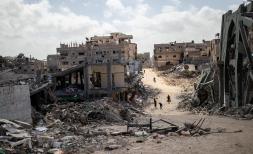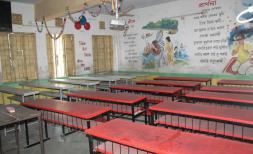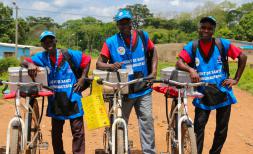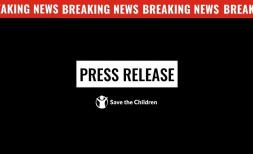WARNINGS OVER CHILD MALNUTRITION RISING IN NIGER THIS YEAR AS CLIMATE CRISIS, CONFLICT TAKE A TOLL
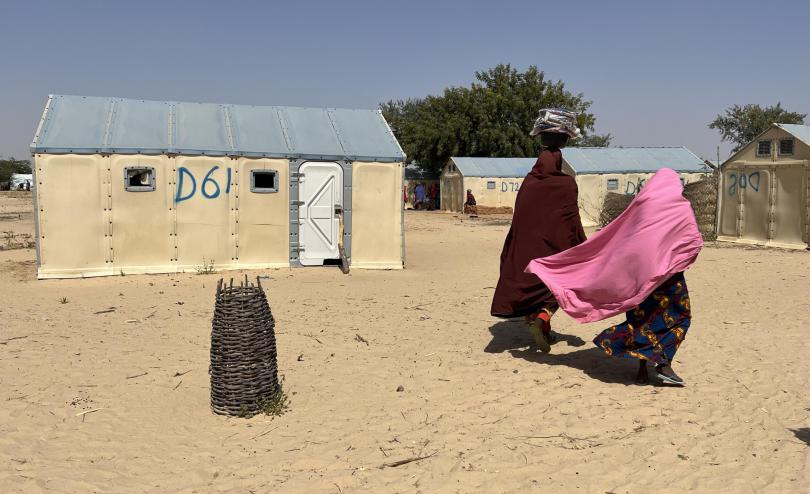
MARADI, Niger, 25 January 2023 – More children in southern Niger are suffering from malnutrition with doctors and aid agencies warning that the situation could get worse this year due to the climate crisis, higher food prices and more women and children arriving to escape violence in Nigeria, Save the Children said.
Niger and two other Central Sahel nations are listed among 15 countries hardest hit by an unprecedented global food and nutrition crisis according to UN agencies, which this month warned that faster progress was needed to tackle acute malnutrition among children.
On top of that, a conference in Niger’s capital, Niamey, this week was told that violence in the Lake Chad region of Niger, Nigeria, Cameroon and Chad has forced about 3 million people from their homes, with entire communities living in limbo, unsure if they will ever return home.
In a hospital in Aguié, 70km from Niger’s third largest city Maradi, doctors said that the number of children admitted with malnutrition last year rose by 25% to about 2,300 with most treated successfully but 175 deaths.
Dr. Moussa Boubacar, head of medicine for Aguié district, said he feared the numbers in 2023 would be higher after another disappointing harvest, flash flooding, a spike in fertiliser prices that has been linked to the war in Ukraine, and a rising birth rate.
“We think the number of children admitted with malnutrition will go up even more this year,” said Dr. Boubacar at Aguié hospital where Save the Children has built a unit for children with malnutrition, trains and pay staff, and has supplied equipment.
Volunteer nurse Ramadou Haro, 42, said she had worked in the hospital for about 10 years and had never seen the situation as severe as last year.
In Niger, almost 3 million people – or nearly 10% of the population – are expected to be facing hunger in the next six months, according to aid agencies working in West and Central Africa, with 80% of the population dependent on agriculture.
Currently, more than 30 million children aged under five in the 15 worst-affected countries suffer from acute malnutrition and 8 million of these are severely wasted, the most visible and deadliest form of undernutrition, according to the UN.
Indatou*, 22, mother of 20-month-old Zeinab* being treated for malnutrition in Aguié hospital, said she was told her daughter became sick due to too little and poor quality food.
“I was so distraught. I have never seen my child in such a state. I thought she was going to lose her life. She was breathing so badly and was very weak. I don't want my daughter to go through this again,” she said, adding that Save the Children had taught her how to ensure her daughter had a better diet when she returns to her village.
On top of a food crisis, Niger is taking in increasing numbers of refugees, some fleeing non-state armed groups in northwest Nigeria. The cost of food has also jumped, with traders at the main market in Maradi saying prices had risen 50-75% in the past year, particularly for imported staples such as cooking oil, rice and sugar.
Tens of thousands of people have crossed into Niger since 2019, with the Niger government working with the UNHCR and other aid agencies to set up and run refugee camps called Villages of Opportunity, close to Maradi which is 40km from the border with Nigeria. Other refugees are living in host communities. Niger is now housing more than 300,000 refugees.
Leaders of two of the refugee camps said people are constantly arriving, with many women on their own after their husbands were killed or left to find work in other countries. Local communities had welcomed them, with even some marriages between the two groups.
Larey*, 30, arrived at the Dan Daji Makaou Village of Opportunity, 60km from Maradi, about nine months ago with her three children, aged 2, 9 and 14. She said her husband was killed by an armed criminal group that attacked her village so they fled to the camp.
“We feel safe here. We sleep well,” she said, adding that her two eldest children attend a child friendly space* set up in the camp by Save the Children. “There they are together with other children and they can play football and have fun. It gives them a chance to forget their problems as they have been through such a lot.”
Hamir*, 16, also attends a Save the Children child friendly space set up in another refugee camp, 18km from Maradi. Hamir arrived on his own in Chadakori Village of Opportunity from Nigeria two months ago after he lost his parents in separate attacks.
“Bandits arrived in the village, and my father was shot down and died. The year after my mother was also killed,” said Hamir, a keen footballer, who now lives with a host family that Save the Children helped to find.
Ilaria Manunza, Country Director for Save the Children Niger, said:
“The escalating crisis in Niger and the Central Sahel region is dangerously below the radar with international attention elsewhere. But every day we are seeing more and more children suffering from hunger and a lack of nutritious food due to a collision of climate and economic shocks, ongoing conflict and deep poverty.
“Medical teams are ringing the alarm bell but the warnings are going unheard and the needs this year are set to increase even further. More and more people are crossing the borders into Niger with conflict in so many neighbouring countries and Niger is very welcoming, but the resources are very limited. More funding is needed to be able to save lives and ensure children are given a healthy start to life, an education and live free from violence.”
*Name changes to protect people’s identity
Multimedia content, including a VLOG, four case studies and photos: www.contenthubsavethechildren.org/Package/2O4C2SDQEF1B
NOTES TO EDITORS
- Global Action Plan on Child Wasting
- In December 2022, Niger was hosting more than 300,000 refugees, mainly from Nigeria, and 376,000 people were registered as internally displaced, according to the UNHCR.
- Child friendly space – A child friendly space is a place for children to be able to play, socialise and express themselves as they rebuild their lives.
- Aguié District Hospital data: Number of children admitted to the malnutrition unit from 2019-2022:
- 2019 – 1,522
- 2020 – 1,968
- 2021 – 1,867
- 2022 - 2,331
For further enquiries and media spokespeople please contact: Florence Cisse Florence.cisse@savethechildren.org
Our media out of hours (BST) contact is media@savethechildren.org.uk / +44(0)7831 650409
Please also check our Twitter account @Save_GlobalNews for news alerts, quotes, statements and location Vlogs.
